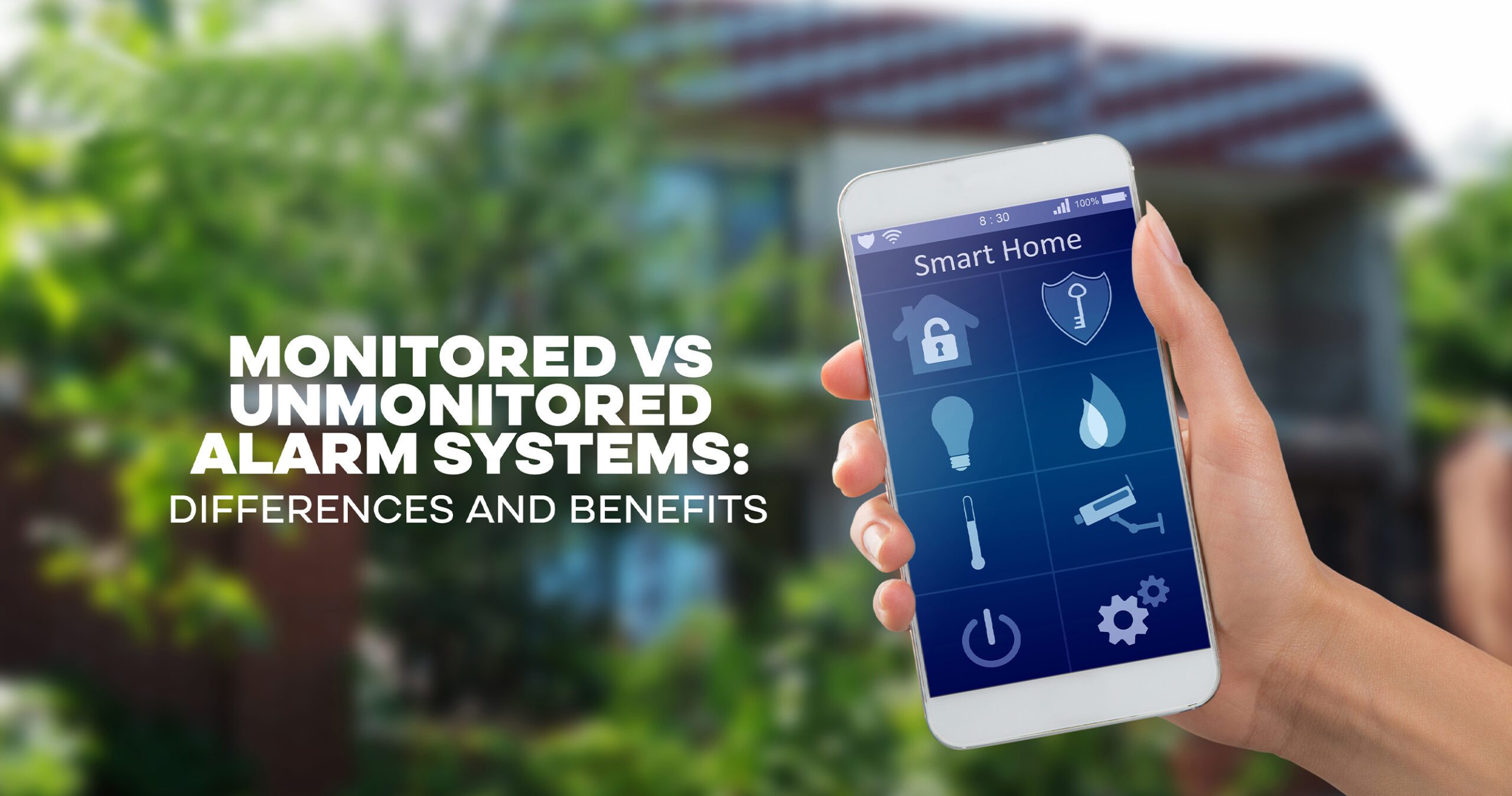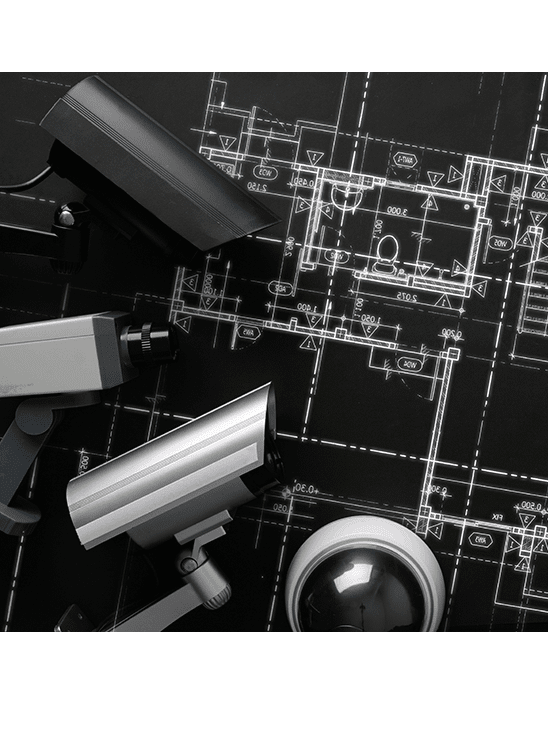
Alarm systems are an effective and popular choice when it comes to home and commercial security. These alarm systems, with or without monitoring capabilities, help protect lives and properties from fire, gas leaks and other hazards. In general, they are available in two service types: Monitored Alarm Systems and Unmonitored Alarm Systems (or Local Alarms).
While they each have their benefits, their primary difference is that monitored alarms are connected to a central monitoring and response service, while unmonitored alarms are not. In this post, we will discuss the differences and benefits of an alarm system with monitoring in comparison to an alarm system without monitoring. We will conclude by providing recommendations on how to activate either of these alarm systems for your home or business.
What is a Monitored Alarm System?
A Monitored Alarm System is one that actively utilizes services provided by a third-party company to protect its users. In most cases, this is for a monthly recurring fee paid to the service company. As mentioned earlier, monitored alarm systems connect to the service provider’s central monitoring station for automated alarm response. Emergency response types could include a Police or Fire Department response or a visit from the security service team.
What is an Unmonitored Alarm System?
An Unmonitored Alarm System, also known as a Local Alarm System, is one that does not include any external monitoring service. Such alarms notify persons within the home or property about issues but do not contact public safety authorities for additional response.
Benefits of a Monitored Alarm System
If you are in the market for an Alarm System, you may wish to consider the following benefits of a Monitored Alarm System:
- Monitored alarm systems have sensors that continuously record and monitor activity and alert the monitoring center when necessary.
- The Central Monitoring Stations of most service providers have trained personnel who either respond to emergencies or notify a response team to do so.
- Monitored alarm systems also submit automated alerts when an alarm is triggered. This feature provides easy access to help in the event of an emergency, making them especially beneficial for elderly or disabled customers.
- They offer the peace of mind of knowing that one’s home or business is continuously monitored for unexpected events or emergencies.
Benefits of an Unmonitored Alarm System
Here are some of the benefits of an unmonitored alarm systems:
- Unmonitored Alarm Systems are cost effective and more customizable. Customers can set a budget for their home or business security and customize features to fit within that budget.
- Unmonitored Alarm Systems also tend to require a one-time purchase, service, and installation fee, as opposed to a monthly recurring fee with monitored alarm solutions. This can be an effective way to protect one’s home or property without the expense of monthly fees and contracts.
- Modern Unmonitored Alarm Systems are easy to self-install and do not require additional fees for professional setup.
- Finally, like Monitored Alarms, Unmonitored Alarms can be setup to record motion and other activity with date and time stamps. These can be useful in identifying criminals and their criminal activity for prosecution.
Differences between a Monitored and Unmonitored Alarm System
Alarm systems play an important role in the security structure of homes and businesses. Here are some of the primary differences between a monitored and unmonitored alarm systems:
- Monitored Alarm Systems are connected to a central monitoring station, that uses automated systems to identify security alerts. When an alarm is triggered, the monitoring station also contacts relevant public service authorities for additional response. On the other hand, an Unmonitored Alarm System gives local notifications when there is an alert or breach. This could include a loud sound alarm, flashing lights, and other methods to notify occupants.
- Monitored Alarm Systems usually include maintenance service for alarm equipment, cameras, and other security devices. This way, if an equipment develops a problem, they can notify the customer and have it replaced. Unmonitored Alarm Systems on the other hand do not include that feature. As such, device errors, failing cameras, etc. must be identified and corrected by the customer. Additionally, with unmonitored alarms, reported alerts must also be reported directly to relevant public safety authorities for additional response.
- Monitored alarm systems, while requiring a recurring fee, provide a higher level of security and peace of mind for their customers. Alternatively, unmonitored alarm systems also provide a certain amount of peace of mind without recurring charges.
- Monitored Alarm Systems also tend to store video recordings of activities off-site to prevent tampering and corruption of video evidence. Unmonitored Alarm Systems on the other hand mostly include storage of video recordings at the local site. This makes them prone to damage by intruders and thieves. However, this disadvantage is gradually being removed with the availability of cloud storage options for unmonitored alarm systems.
Both monitored and unmonitored alarm systems have their advantages and disadvantages. Ultimately, the choice a customer makes in choosing an alarm system will depend on several factors as highlighted.
Our company, Access Security Solutions LLC, provides service, installation, and maintenance services for both Monitored and Unmonitored Alarm Systems. If you are in the market for a security solution for your home or business, we encourage you to contact us today for a customized solution for your specific needs. You may also contact us directly online, over the phone at 510-356-0083 or on Facebook, Twitter or LinkedIn today.
